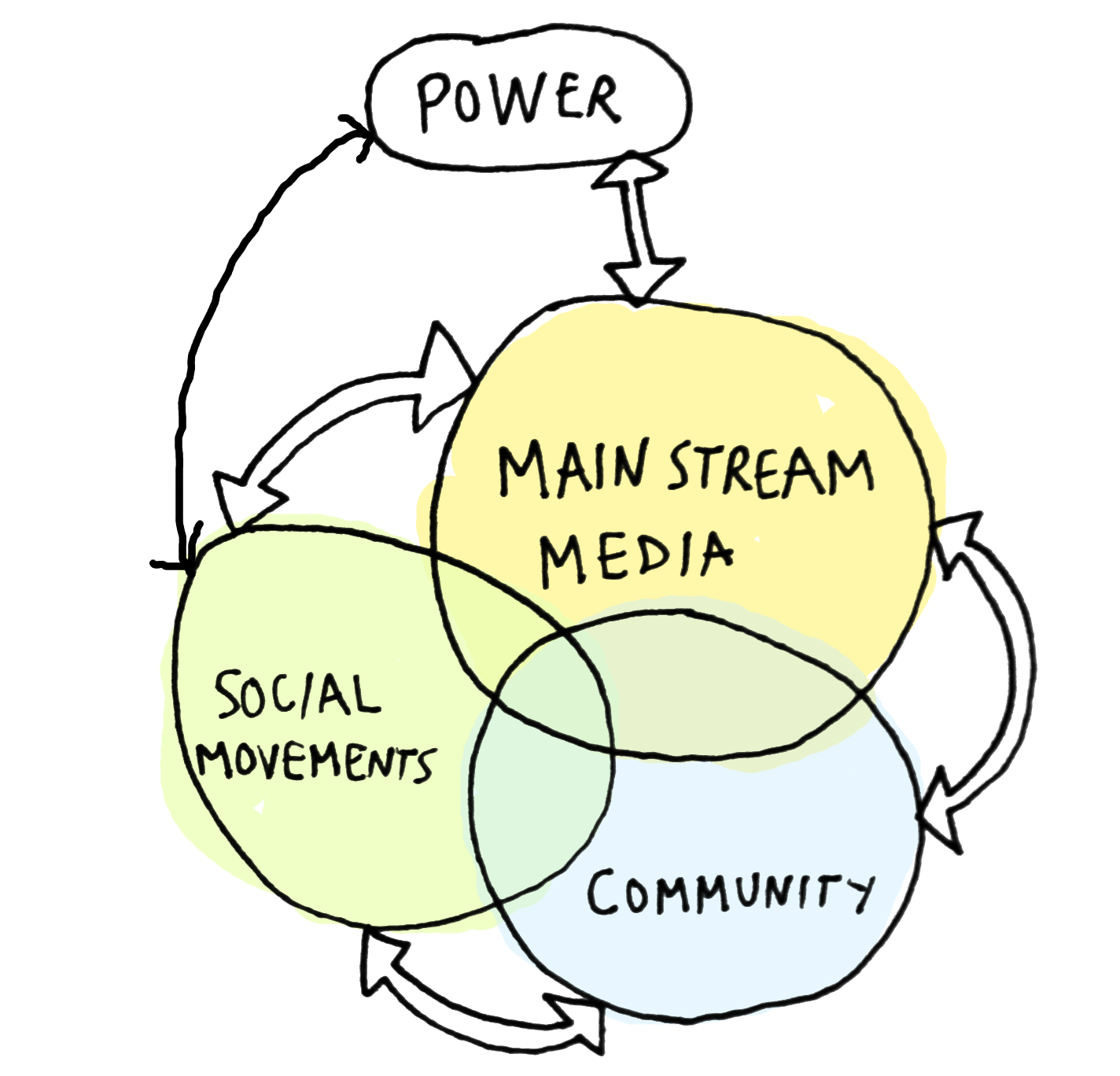The root word in Ecological is "Eco" which is associated with ecology, the environment, our world: our atmopshere. What does the ecology, which is associated with science, have to do with something like media? Well, the
word ecology implies the study of environments: their structure, content, and impact on
people. The impact. Look into the way our environment dictacts what we should do, what we think is okay and what we should avoid. The things you do in the comfort of your home are not always the same things you'd act on in public. An environment is "a complex message system which
imposes on human beings certain ways of thinking, feeling, and behaving." It
structures what we can see and say and, therefore, do.
Media Ecology was introduced in 1968 at the annual meeting of the National Council of Teachers of English by A. C. Eurich, ed. (1970). Media ecology looks into the depths of ways media and communication affect human perception, understanding, feeling, and value. This analysis also looks at how "our interaction with media facilitates or impedes our chances of survival." Media ecology tries to discover and "understand what roles that media force us to play, how media structure what we are seeing, why media make us feel and act as we do.” But are we really forced or simply influenced? Our environment then specifies what we are permitted to do and what we are not. Media environments are in the form of books, radios, films and television, etc., the specifications are more often implicit and informal. Media ecology is about seeing the big picture. It studies the ways that media help us live our lives. Understanding how media shape our lives by influencing how we make sense of our social world.

Image source: Google Images
Reference to: Critical Media Studies - Brian L. Ott and Robert L. Mack.
No comments:
Post a Comment